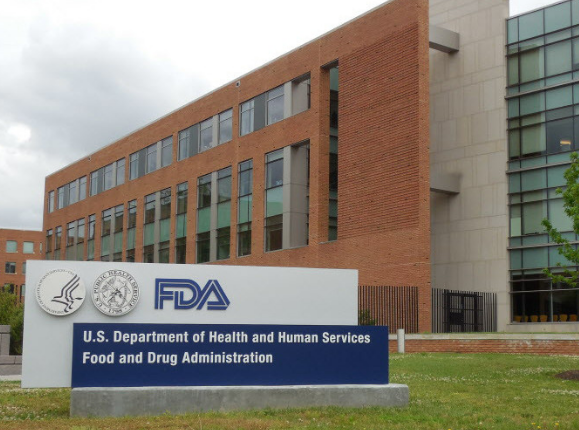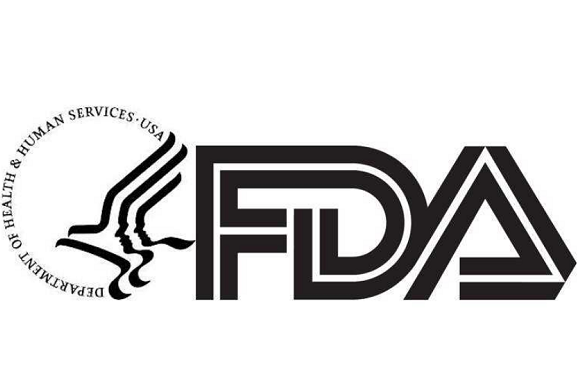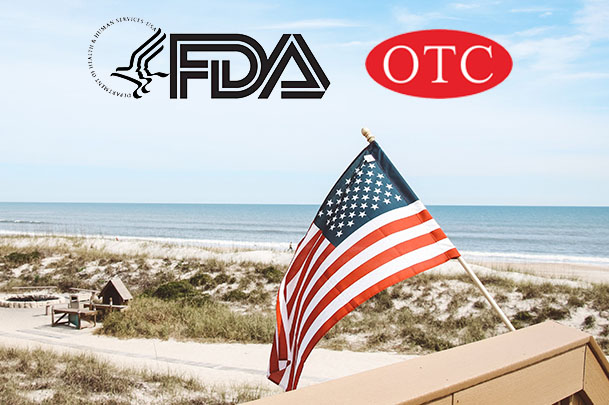1. Introduction to the US FDA
The U.S. Food and Drug Administration (FDA) for short, FDA is one of the executive agencies established by the U.S. government in the Department of Health and Human Services (DHHS) and the Department of Public Health (PHS). As a scientific regulatory agency, FDA‘s role is to ensure the safety of food, cosmetics, drugs, biological agents, medical devices, and radiological products that are domestically produced or imported into the United States. It is one of the federal agencies whose primary function is to protect consumers. Foods, drugs, cosmetics and medical devices certified by the FDA are safe and effective for the human body. In nearly 100 countries such as the United States, only FDA-approved materials, devices and technologies can be used for commercial clinical applications.

2. Classification of FDA certification
We often say FDA certification, usually includes the following categories:
1. FDA testing of food contact materials
2. FDA registration of laser products
3. FDA registration of medical devices
4. Cosmetics and daily necessities FDA test report
5. FDA registration for food, drugs, cosmetics and daily necessities
3. FDA certification FAQ
Question 1: Which agency issued the FDA certificate?
A: There is no certificate for FDA registration. After the product is registered with the FDA, a registration number will be obtained. The FDA will give the applicant a reply letter (with the signature of the FDA chief executive), but there is no FDA certificate.
Question 2: Does FDA need a designated accredited laboratory for testing?
A: FDA is an enforcement agency, not a service agency. If someone says they are certified laboratories under the FDA, then he is at least misleading consumers, because the FDA has neither public service certification agencies and laboratories, nor so-called "designated laboratories". The FDA, as a federal law enforcement agency, cannot do this kind of thing as both a referee and an athlete. FDA will only recognize the GMP quality of service testing laboratories, and issue certificates of conformity to those who are qualified, but will not "designate" or recommend a specific one or a few to the public.
Question 3: Does FDA registration necessarily require a US agent?
A: Yes, Chinese applicants must appoint a US citizen (company/society) as their agent during FDA registration. This agent is responsible for process services located in the United States and is the medium to contact FDA and the applicant. Shenzhen Huanqiwei testing agency has an American agent, who can easily help you with FDA registration and one-stop solution to your product exporting testing and certification needs in the United States!

4. Why companies must pay attention to FDA certification for export to the United States
"Automatic detention" is a major measure implemented by the US Food and Drug Administration (FDA) for the management of imported food. In short, the goods declared by the FDA as "automatic detention" must pass through the United States when they arrive at the US port. Only after passing the laboratory inspection will it be allowed to enter the United States for sale.
Due to the small number of FDA personnel, in the face of the large number and specifications of imported food, medicine, cosmetics and other products, it is impossible to carry out batch-by-batch inspection, but only spot checks. Generally, the rate of spot checks is 3-5%. If qualified, the batch of products can be released; if the samples are unqualified, the batch of products will be "detained" and processed.
If the problems found in the inspection are general problems (such as unqualified trademarks, etc.), the importer can be allowed to deal with it locally and release it after re-inspection; if the problems found in the inspection are related to hygienic quality, it is not allowed Released, or destroyed locally, or shipped back to the exporting country (region) by the importer, and shall not be transported to other countries (regions). In addition to random inspections, there is another measure, that is, for imported products with potential problems, batch-by-batch inspections must be carried out when entering the customs, rather than random inspections.
‘Automatic detention‘, measures may be based on the following reasons:
1. At least one sample has been found to have obvious hazards to human health, such as harmful elements, pesticide residues exceeding the standard, toxins, pathogenic microorganisms, chemical pollution, etc., violating the relevant regulations of low-acid canned food, or containing Declaration of approved ingredients such as pigments, etc.
2. If there are data or historical records, or notices received from the relevant departments of other countries, it indicates that the products of a certain country or region may cause harm to human health, and the FDA has evaluated the above sources and confirmed that such products are in the market. The United States may also cause the same harm, and the FDA can also announce "automatic detention" measures for such products.
3. A number of samples are unqualified after inspection, but there is no obvious harm to human health, such as deterioration and odor, inclusions, unqualified labels, etc., the manufacturer, exporter or country (region) can be declared to take the following conditions. "Automatic Detention" Measures:
(l) If a manufacturer or exporter‘s products exported to the United States are found to have problems in at least 3 batches of goods that are inspected by the FDA in 6 months, they will be "detained" and dealt with, and the unqualified samples exceed 25% of the inspected samples, FDA will take "automatic detention" measures for such products exported to the United States by the manufacturer or exporter;
(2) If there are at least 12 batches of goods exported to the United States from a certain country or region that are found to have problems during inspection by the FDA in 6 months, they will be "detained"
Five. Several modes of FDA certification
FDA certification is usually divided into traditional FDA registration, FDA testing and FDA evaluation
The meaning of FDA registration: In order to ensure that the manufacturer‘s products exported to the United States meet the local FDA requirements, companies are required to do a self-declaration guarantee process. In fact, most of the FDA registrations have not undergone third-party testing, but companies themselves guarantee.
FDA testing: FDA testing refers more to safety testing of food contact materials, biocompatibility testing of medical products, clinical safety testing, etc.
FDA evaluation: Taking cosmetics as an example, it mainly evaluates the outer packaging and ingredient description.

6. How to apply for drug FDA registration (NDC registration | OTC registration):
Why do drugs need to be registered with FDA?
Section 510 of the Federal Food, Drug, and Cosmetic Act (FD&C Act) requires companies that manufacture, prepare, propagate, compound, or process pharmaceutical products in the United States or supply drugs for import into the United States to register with the FDA. It is necessary for these domestic and foreign companies to list at the time of registration all manufactured, prepared, propagated, compounded or processed pharmaceutical products that are commercially sold in the United States. In addition, it is necessary for foreign businesses to identify U.S. agents and importers when registering.
What are the FDA registration processes for OTC OTC drugs:
An over-the-counter drug must be deemed safe and effective, it must meet the regulatory requirements of the Food and Drug Administration (FDA), and the conditions of any relevant monograph. RingTest can assist you in properly registering your product to comply with FDA requirements.
1. Registration (contact our staff at 4008-258-120 to learn about the FDA registration fee and cycle of related drugs)
- Registration of drug establishments
- Drug listing information
- List another OTC drug
- Update registration information
2. Labelling and Ingredient Inspection
- Ingredient declaration design and inspection
- Label declaration design and inspection
- Packaging declaration design and inspection
3. Registration certificate
4. U.S. legal agency
The U.S. Food and Drug Administration (FDA) and Customs (and most other importing countries) require that any local or foreign manufacturer and distributor wishing to import or export must have a local agency responsible for reporting to FDA/NDC and Customs Make declarations and are responsible for answering legal and regulatory questions about their products. Mantong provides clients with professional legal agency services. As your U.S. agency, we do our best to provide you with the legal and scientific assistance you need to enter the U.S. market.
5. Send old submissions to the new FDA electronic system
Submission of drug establishment registration and drug listing information has been converted from paper to electronic. FDA no longer accepts written submissions of such information in the absence of exceptional circumstances. Cyclone can assist you in transferring your drug establishment registration and drug listing information to the new electronic system.
Pharmaceutical company registration:
All pharmaceutical factories that manufacture active pharmaceutical ingredients or other direct effects that are intended to be used for the diagnosis, treatment, symptom relief, treatment or prevention of disease, or that can affect the function and structure of the body, are required to register with the FDA and declare all their ingredients . Over-the-counter OTC drugs (eg: hand sanitizer, cosmetics with sunscreen, fluoride toothpaste, etc.) are required by the US FDA to register their manufacturers, packers and distributors with the FDA.
Drug FDA registration requires a US agent:
Non-US companies must designate a US agent to communicate with the FDA, and designate an authorized contact person to communicate with the FDA. The testing agency has a US agent who can handle the FDA registration of drugs for you in one stop.
Dun & Bradstreet Number Application:
Dun & Bradstreet Number (D-U-N-S? Number is the abbreviation of Data Universal Numbering System) is a unique 9-digit global coding system, which is widely used in corporate identification, organization and arrangement of business information. Dun‘s coding can help you quickly obtain original, rich and high-quality information products and services.
Since 2010, FDA has stipulated that medical device and pharmaceutical companies must first obtain a Dun & Bradstreet number (also known as Deng‘s number, DUNS number) when applying for FDA registration. Subsequent food companies also need to apply for a Dun & Bradstreet number. We will help you get a Dun & Bradstreet number if you need it.
与此原文有关的更多信息要查看其他翻译信息,您必须输入相应原文





